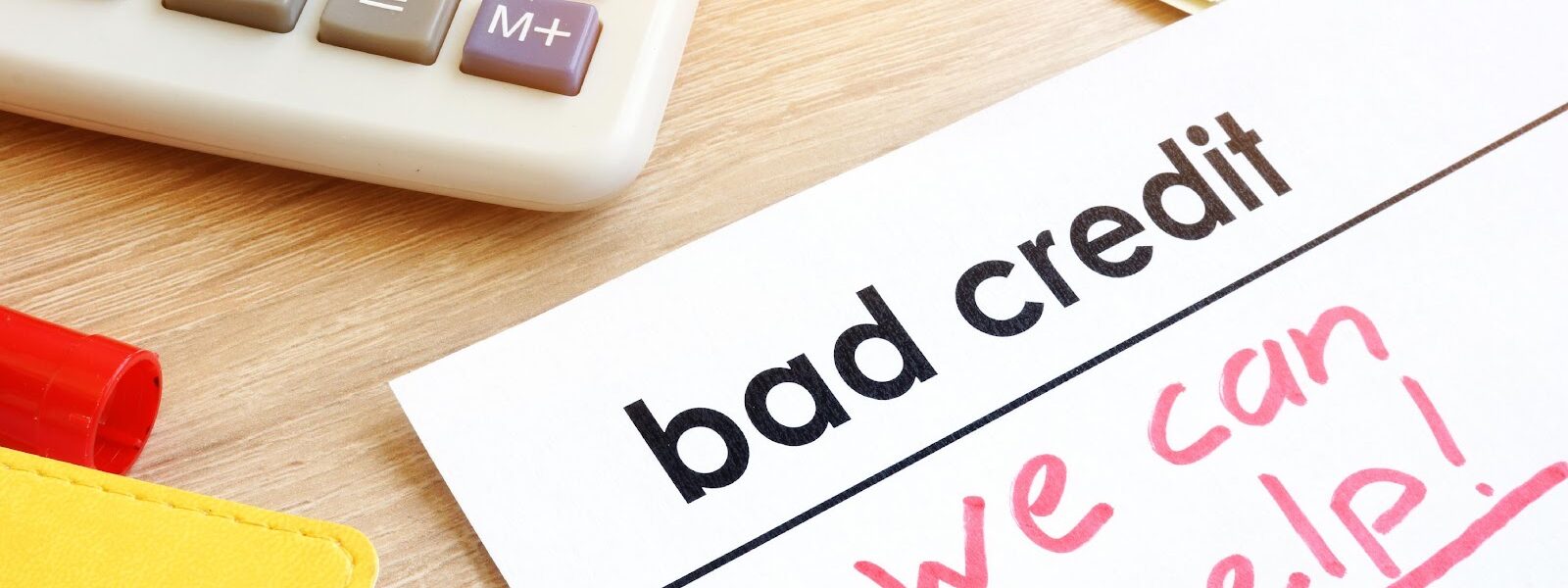Running a business is not easy and sometimes, to keep things going or scale operations, you need a loan. But what if you have a bad credit history?
While traditional lenders may turn you away due to a bad credit history, there are other financial options. It’s important to understand both the opportunities and the potential downsides that come with taking out a loan.
Understanding the Challenges of Bad Credit
Before we proceed with solutions, it is important to understand what makes certain borrowing arrangements difficult with bad credit. Most traditional lenders consider any credit score below 630 as subprime. So, if you fall into this category when you need a loan expect:
- Higher interest rates – These are increased to offset the risk of non-payment.
- Collateral required- Some may ask for your assets as security.
- Low chances of approval- Bank and credit union applications are generally rejected with bad credit.
Despite these challenges, there are very common scenarios where these businesses need capital to meet payroll, buy inventories, and fund their growth. If you need a business loan and are standing in the way of bad credit, then let’s look at the options for funding that could stand you in good stead.
Alternative Ways in Getting a Loan under Bad Credit
These are some of the ways in getting a loan:
1. Secured Business Loans
If you have valuable business or personal assets, such as equipment, vehicles, or real estate, you may qualify for a secured loan. Because these are collateral-backed loans, lenders may be willing to consider applicants with poor credit if you need a loan.
The upside is that interest rates can be lower than unsecured ones; the risk, however, is that you will lose the asset you pledged in case of default. Such a secured loan, though, is a practical solution when you need a loan urgently and are able to provide security.
2. Invoice Disposal
Business invoice financing is perfect for any business with unpaid invoices. Instead of waiting for 30 or 60 days for customers to pay, you sell the invoices at a discount to a lender. You get fast cash flow, and when your customer settles the invoice, the lender gets paid.
This does not put much emphasis on your own credit score. The lender evaluates your customers’ creditworthiness instead, making it an excellent option if you have a weak credit history.
3. Merchant Cash Advances
Swift money is not far away if the merchant has steady credit card sales. With an MCA, the lender generally provides the borrower with an advance payment in cash and collects its share of the daily or weekly sales until the loan is repaid.
These cash advances work rather quickly and are favored by retailers or restaurant businesses when speed is of the essence for granting the need for a loan. But watch out for it being one of the most expensive methods of financing, with effective interest rates often reported over 50 percent.
Increasing Your Approval Chances
When you need a loan, a credit is one you apply for by strategizing and improving chances of approval. Here are some ways that can help you improve your application:
Document your cash flow: Even with bad credit, consistent cash flow demonstrably appeals to lenders.
Offer collateral: Security against a loan offsets credit risk.
Try alternative lenders: Online lenders and fintech companies usually maintain more flexible requirements than banks.
Co-signing: Joining a partner with good credit will certainly strengthen your application.
Decrease current liabilities: Reducing your debt can improve your debt-to-income ratio, making it less risky for the lender.
It is extremely important to present your business as the best possible option. Lenders want to see you have a plan, a functioning business model, and the capacity to repay—even with less-than-perfect credit.
The Reality of Bad Credit Borrowing
In order to fund a loan with bad credit, it helps one to set realistic expectations about the downsides-a few of which include:
Higher costs: Interest rates and fees are usually above the levels offered to those with good credit.
Shorter periods of repayment: Lenders may work to ensure a fast repayment scheme that can put pressure on your cash flow.
Collateral risk: You are probably going to be forced to present some assets of yours, either personal or business.
Limited loan amounts: The borrowing limits may be reduced, with the consequent effect on how much funds you really get.
These circumstances, however, do not mean to say that you should not go for borrowing a loan. They are merely there to highlight the need to do your research so that you can comprehend all terms of any loan fully.
Building Toward a Better Credit Rating
If you always need a loan, then it is probably time for you to focus on how to improve your credit. These steps could be paying on time, reducing credit utilization, or even periodically checking your credit report to ensure that no errors exist that might bring down your score. At a later stage, better rates, better terms, and bigger loans will be at your disposal.
Some lenders also provide credit-builder business loans-they are very small loans that can be used to prove reliability and help strengthen your credit profile. While not really good for an emergency, they are good for your overall financial health.
Final Thoughts
TIf you need a loan, it does not have to be the end of the road, even if your credit isn’t perfect. Take the time to consider your options when you are in need of a loan. When the traditional method of lending is out of reach, secured loans, invoice financing, and a merchant cash advance can help fill the gap.
Just make sure you’re weighing the advantages and disadvantages of each type of finance. When you need a loan, it can be tempting to say yes to any first offer. Never forget to set a view on what is going to cost you and impact you in the long run.
Remember, funds can be borrowed even with bad credit but definitely require extra strategizing, researching, and careful financial planning. From the moment you start to acquire knowledge, the better position you are in to find funding whenever you need it the most.




